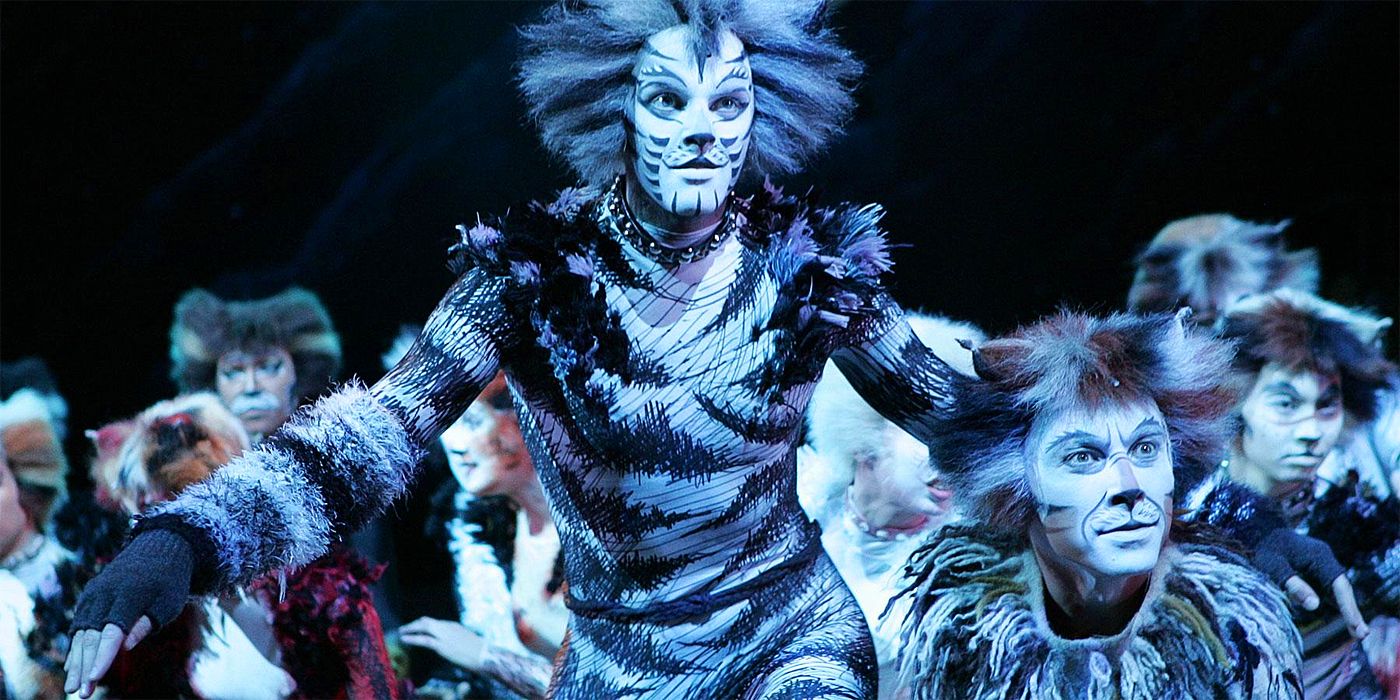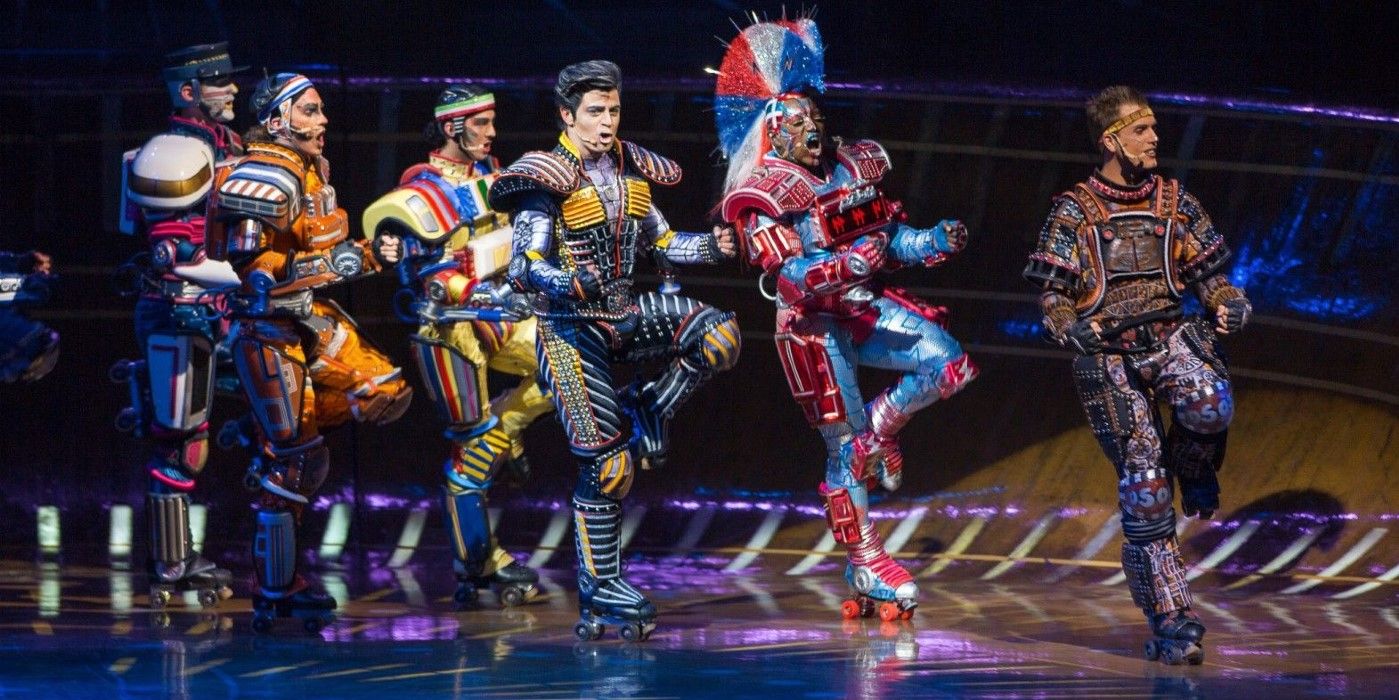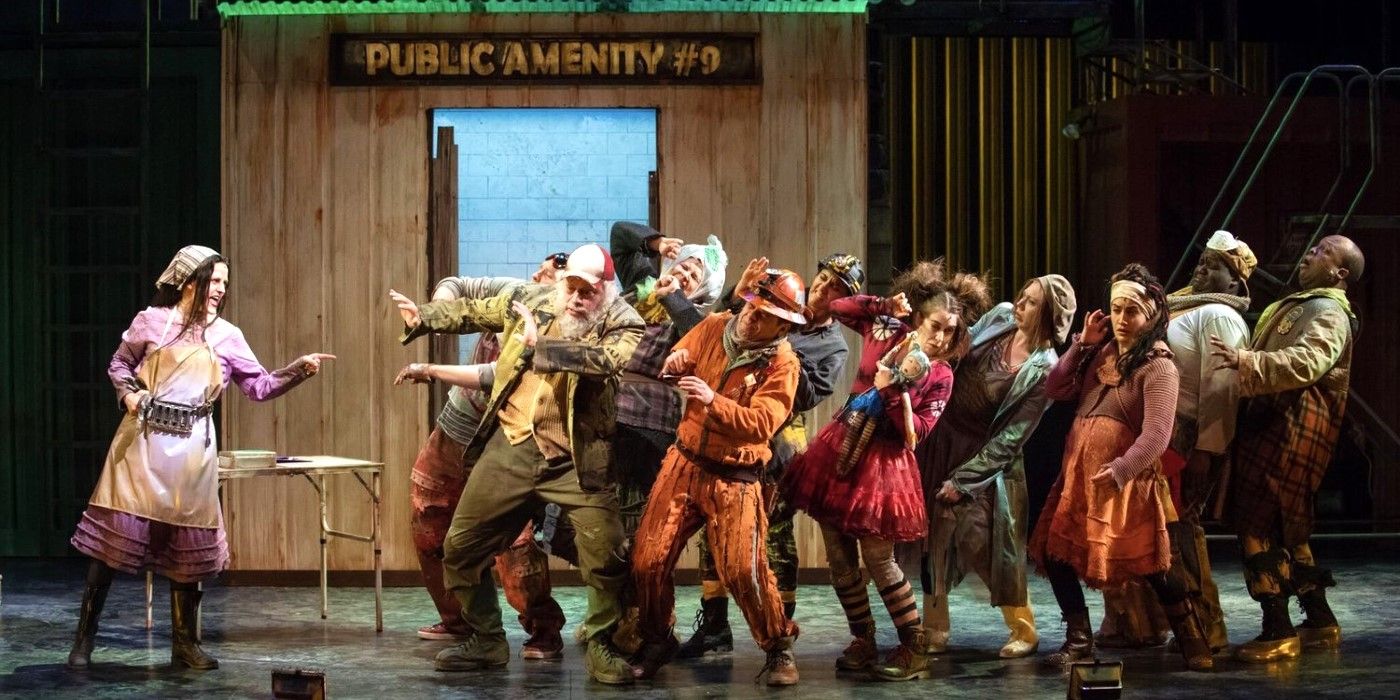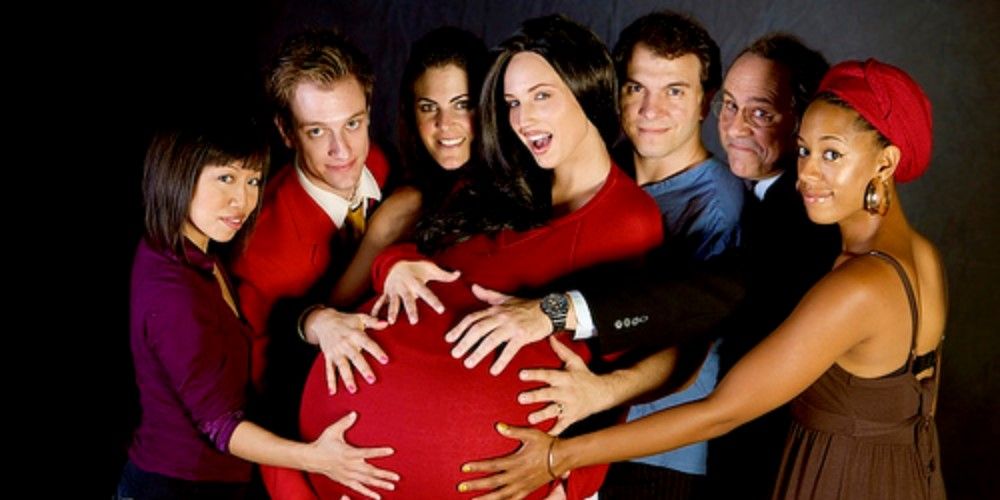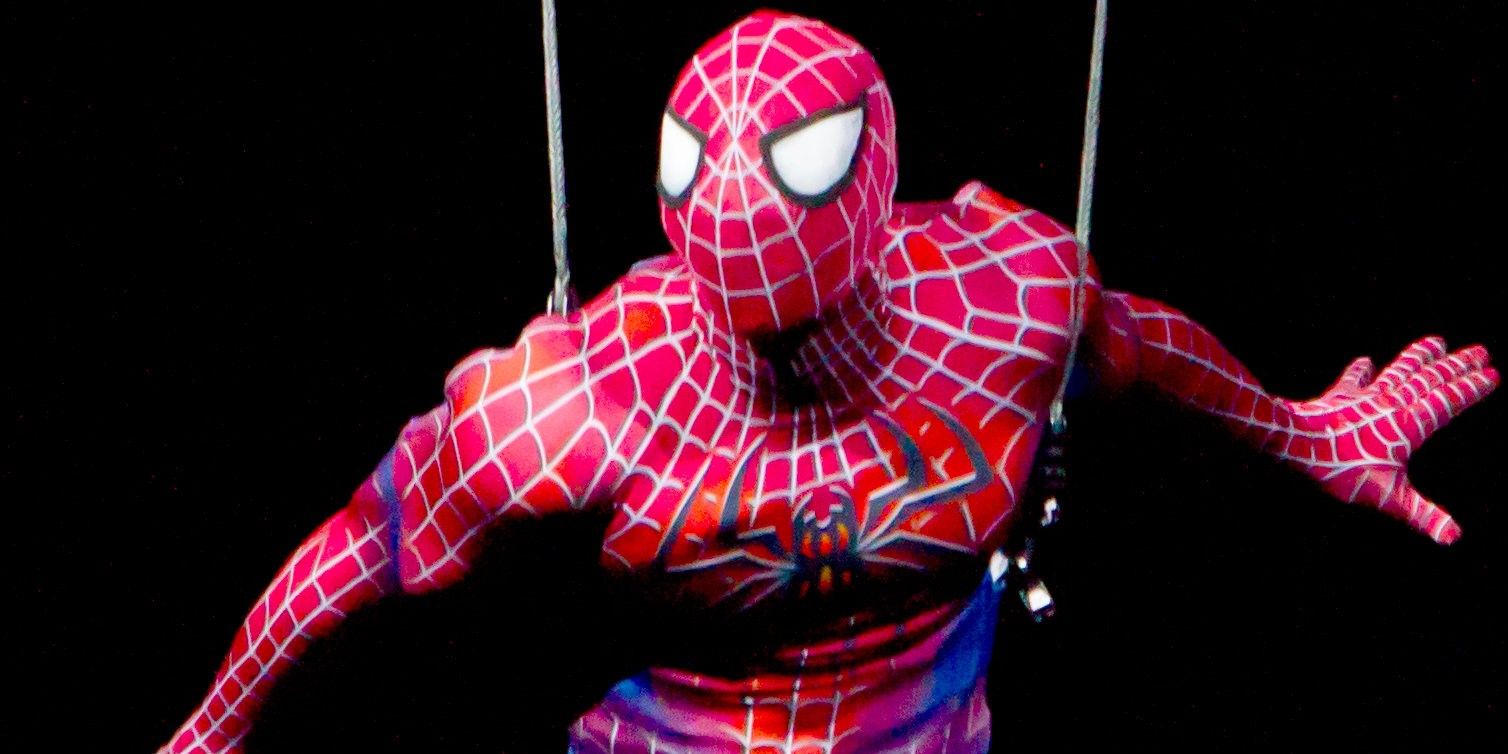Musicals have always been a little weird. Some of the Great White Way's best shows have been about pinball, the Mormon church and vulgar puppets, and that's just to name a few. In May 1981, the curtain opened on Andrew Lloyd Webber's Cats, a show based on obscure verse meant for children by poet T.S. Eliot. The plotless spectacle would go on to become one of New York and London's longest running productions (18 and 21 years respectively).
Last year's much anticipated film version failed to live up to the hopes of fans, but it became something arguably even better: an oddity that people (theatre and otherwise) love to hate on. If that's your taste, you may want to sample these five shows which are even stranger than Bustopher Jones in his white spats eating garbage.
Starlight Express
Cats isn't Andrew Lloyd Webber's only too-weird-to-be-believed musical. Starlight Express is what became of - wait for it - his failed attempt to get his own version of the Thomas the Tank Engine series greenlit by studios in the UK. When no one picked up Webber's pilot, he reworked some songs, recruited some strong singers, and the rest is history. That's right, it's Cats, but with trains... and slightly more plot, involving a steam engine and a diesel engine competing for the affections of a first class train car.
Starlight Express has been retooled so many times, there are eight numbers and several subplots that may or may not appear in any given production audiences see. What they see might not be what they expect. While the cats in Cats at least resemble cats, Starlight Express's engines are played by what are very definitely humans on skates. The roller derby vibe does match the soundtrack full of 80s bangers and power ballads. Somehow the show has serious fans in Germany, where it's been playing since 1988.
Urinetown
This satirical musical comedy by Greg Kotis and Mark Hollmann is as good as its premise is bizarre. It won three Tony Awards, and its themes of populism, capitalism andwhat happens to people in crisis are even more relevant in 2020 than they were when it premiered in 2001. Ironically, Urinetown was meant to take place about 20 years in the future, after a drought has broken down society. With water still scarce, private toilets are made illegal, and access to such facilities is controlled by a megacorporation that exploits the masses in the name of conservation.
Urinetown draws from Theatre of the Absurd techniques like self-aware fourth wall breaking, as well as traditional Broadway show conventions. The effect is one of levity but not quite uplift, as you might expect from a play about a dystopia in which you have to pay to pee.
Octomom: the Musical
Those who've heard of Octomom: the Musical probably caught a quick news segment about it, because the extremely of-the-moment production never made it to Broadway. Still, the creative genesis of the play is less cringeworthy than one might think. First time playwright Chris Voltaire was inspired by tabloid regular Nadya Suleman (on a related note, please no one make a Joe Exotic musical) but rather than skewer her, he sought to parody the celebrity and wealth obsessed pop culture of the early 2000s. The hour-long time capsule of a show is an easy-to-stage mix of stand up comedy and cabaret that also includes send ups of Bernie Madoff and the financial crisis.
Carrie
Stephen King and musical theatre: they go together like prom and pig's blood. Carrie's first Broadway run ended after only five shows, making it one of the most notorious and expensive flops in New York theatre history (producers lost seven million dollars). Revivals in 2012 and 2015 lasted longer and got better reviews, but King's tale of menstruation, bullying, and revenge is still a curious choice for musical adaptation...even when the composer's name is Michael Gore.
It might seem like the violent subject matter was the deal-breaking issue, but among the problems that befell the production was the fact that they couldn't get the blood to look sufficiently intimidating enough to scare the audience. One critic compared it to strawberry ice-cream topping.
Spider-Man: Turn Off the Dark
Spider-Man is one of the most popular characters on Planet Earth. He ranks alongside Batman in frequent polls of favorite comic book characters, he's been in at least 16 movies and his likeness has been plastered on kids' bookbags and lunchboxes for fifty years. The band U2 was almost as popular at the start of the new century. They'd just released Beautiful Day and were about to play the Super Bowl halftime show. A musical starring Spidey, written by Bono and The Edge seemed like the surest bet ever. Add Julie Taymor of Broadway's The Lion King fame (which remains the most financially successful piece of media of all time), and Spider-Man: Turn Off the Dark's should've been a massive hit.
Instead, it became the laughing stock off the theatre world, and a legal nightmare to boot. The concept for the musical was something of a cross between Cirque du Soleil, a live Disney-style traveling show for kids and standard Broadway song and dance fare. It took awhile to get all those elements to gel, and not all that successfully. Spider-Man went through 182 preview performances before opening to the public, and several actors suffered injuries. The "unfinished" show received mostly negative reviews that singled out the cheesy songs, jokes and costumes in addition to underwhelming and dangerous tech. You could say it never really got off the ground.

